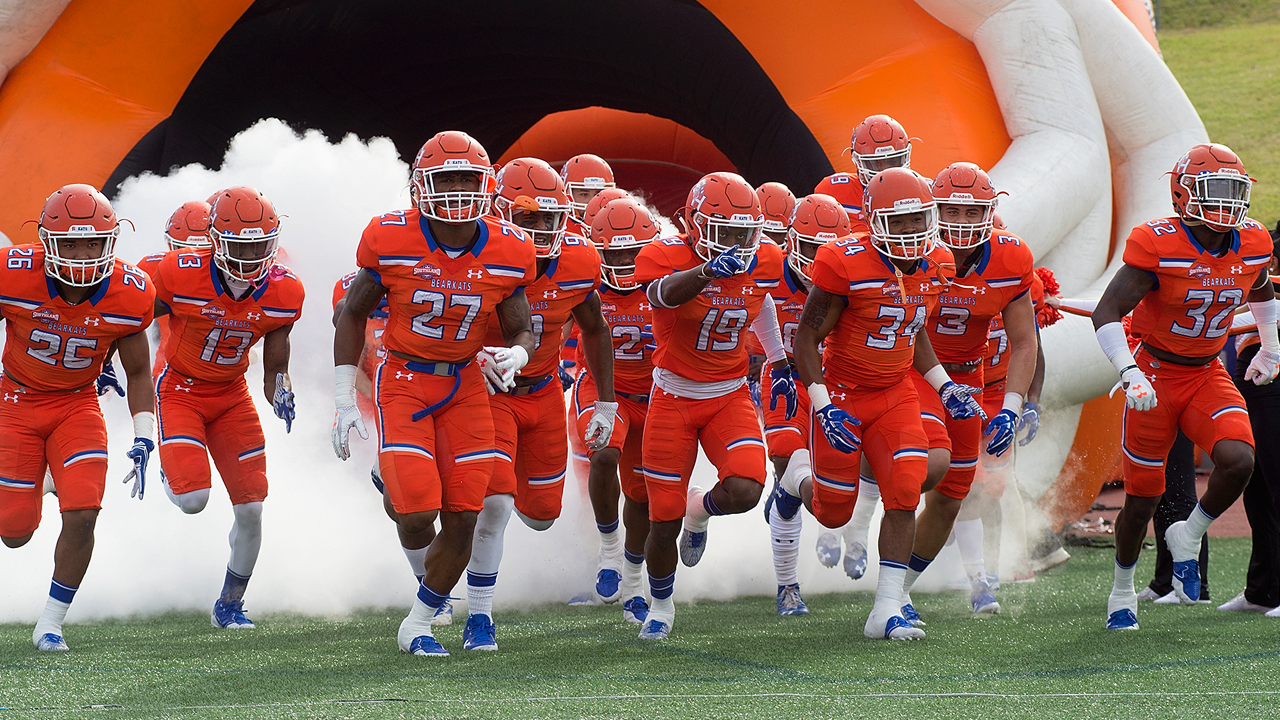-
Posts
1,881 -
Joined
-
Last visited
-
Days Won
6
89Falcon last won the day on January 19
89Falcon had the most liked content!
About 89Falcon
Recent Profile Visitors
The recent visitors block is disabled and is not being shown to other users.
-
 89Falcon reacted to a post in a topic:
Jasper is Open... Crumedy leaving for FB Travis
89Falcon reacted to a post in a topic:
Jasper is Open... Crumedy leaving for FB Travis
-

Jasper is Open... Crumedy leaving for FB Travis
89Falcon replied to AggiesAreWe's topic in High School Football
Got it. Who made it farther in the playoffs? Barbay or the "home cooking guy"? -

Jasper is Open... Crumedy leaving for FB Travis
89Falcon replied to AggiesAreWe's topic in High School Football
Why would they do that? Based upon your logic, he is not a good coach. They need a "good coach" if they want to beat WOS and Carthage this year. Just a coach away from State Championship. -
 TAMUC#1 reacted to a post in a topic:
Hemphill is open
TAMUC#1 reacted to a post in a topic:
Hemphill is open
-
 Anotherhasbeen123 reacted to a post in a topic:
Jasper is Open... Crumedy leaving for FB Travis
Anotherhasbeen123 reacted to a post in a topic:
Jasper is Open... Crumedy leaving for FB Travis
-
 Mr. Buddy Garrity reacted to a post in a topic:
Jasper is Open... Crumedy leaving for FB Travis
Mr. Buddy Garrity reacted to a post in a topic:
Jasper is Open... Crumedy leaving for FB Travis
-
 89Falcon reacted to a post in a topic:
Jasper is Open... Crumedy leaving for FB Travis
89Falcon reacted to a post in a topic:
Jasper is Open... Crumedy leaving for FB Travis
-

Jasper is Open... Crumedy leaving for FB Travis
89Falcon replied to AggiesAreWe's topic in High School Football
If Warren gets a good coach, they should be able to beat Newton. As you indicated multiple times, winning has little to do with talent and primarily comes down to coaching. Speed, coordination and strength meaning very little. I was recently at an event and noticed how the Warren kids looked exactly like the Newton kids and that there is no reason for Warren to not compete with Newton. Still cant figure out why college coaches only recruit athletically dominant players? Seems like they could win with any group of players with good coaching. -
 2wedge reacted to a post in a topic:
Jasper is Open... Crumedy leaving for FB Travis
2wedge reacted to a post in a topic:
Jasper is Open... Crumedy leaving for FB Travis
-
Center best player moved to San Augustine
-
 Mr. Buddy Garrity reacted to a post in a topic:
Jasper is Open... Crumedy leaving for FB Travis
Mr. Buddy Garrity reacted to a post in a topic:
Jasper is Open... Crumedy leaving for FB Travis
-
 Mr. Buddy Garrity reacted to a post in a topic:
Jasper is Open... Crumedy leaving for FB Travis
Mr. Buddy Garrity reacted to a post in a topic:
Jasper is Open... Crumedy leaving for FB Travis
-

Jasper is Open... Crumedy leaving for FB Travis
89Falcon replied to AggiesAreWe's topic in High School Football
Looking forward to Warren beating Newton this year when they get a good coach. -
 89Falcon reacted to a post in a topic:
Jasper is Open... Crumedy leaving for FB Travis
89Falcon reacted to a post in a topic:
Jasper is Open... Crumedy leaving for FB Travis
-

Jasper is Open... Crumedy leaving for FB Travis
89Falcon replied to AggiesAreWe's topic in High School Football
Thanks for the validation. I have been fortunate to see kids develop from Jr High through High school for multiple decades. Not sure about the number of kids but I believe it to be well into thousands. There is guaranteed 1000% proven fact that winning is about "Jimmies and Joes, not Xs and Os". In Jasper's case, I have actually "looked at them in the weightroom" and based upon that observation I am certain they will look like Jasper again after one more season, and it will not matter who they have for a coach. Although, everyone will all of a sudden proclaim the greatness of the new coach (similar to how they proclaimed Crumedy a few years ago, after Barbay was run out of town for bad coaching). I can even think of another 4AD2 program in SETX where everyone wanted to fire the coach for a few years and they even thought that "little league coaches" knew more. After the coach that everyone wanted to fire, got a good group of talent in the upper classes they went to the State Championship game and the whole community then thought the coach had an epiphany and learned how to coach. -
Especially since he will be doing it without WRs this coming year.
-

Jasper is Open... Crumedy leaving for FB Travis
89Falcon replied to AggiesAreWe's topic in High School Football
Yep, they are the ones on the field. Cant "make bricks with no straw". Been watching these cycles at various programs for a few decades. I am going to go ahead and make a prediction for you to come back and check later: The next coach will struggle this coming year and will turn the tide back to being "Jasper" when the current sophomores become SRs. -
 89Falcon reacted to a post in a topic:
Jasper is Open... Crumedy leaving for FB Travis
89Falcon reacted to a post in a topic:
Jasper is Open... Crumedy leaving for FB Travis
-
 HarryDoyle reacted to a post in a topic:
Jasper is Open... Crumedy leaving for FB Travis
HarryDoyle reacted to a post in a topic:
Jasper is Open... Crumedy leaving for FB Travis
-

Jasper is Open... Crumedy leaving for FB Travis
89Falcon replied to AggiesAreWe's topic in High School Football
Sub varsity was not good because the top players were on Varsity taking their lumps. -

Jasper is Open... Crumedy leaving for FB Travis
89Falcon replied to AggiesAreWe's topic in High School Football
The biggest “headache” is “poor talent” in the current upper classes. -
How so? Little league coaches not on board?
-
 Mr. Buddy Garrity reacted to a post in a topic:
Woodville’s Babin picks another offer
Mr. Buddy Garrity reacted to a post in a topic:
Woodville’s Babin picks another offer
-
 RETIREDFAN1 reacted to a post in a topic:
**NON-DISTRICT SCHEDULES**/Post here
RETIREDFAN1 reacted to a post in a topic:
**NON-DISTRICT SCHEDULES**/Post here
-

**NON-DISTRICT SCHEDULES**/Post here
89Falcon replied to AggiesAreWe's topic in High School Football
No one can accuse Newton of scheduling "light". -

**NON-DISTRICT SCHEDULES**/Post here
89Falcon replied to AggiesAreWe's topic in High School Football
Only chance is Kountze. Might be the only win of the season. Possibly Tarkington. -
 Reagan reacted to a post in a topic:
West Orange-Stark (21) Carthage (49) 4A DII State Championship---FINAL
Reagan reacted to a post in a topic:
West Orange-Stark (21) Carthage (49) 4A DII State Championship---FINAL
-
18 JR starters back for Shepherd.

